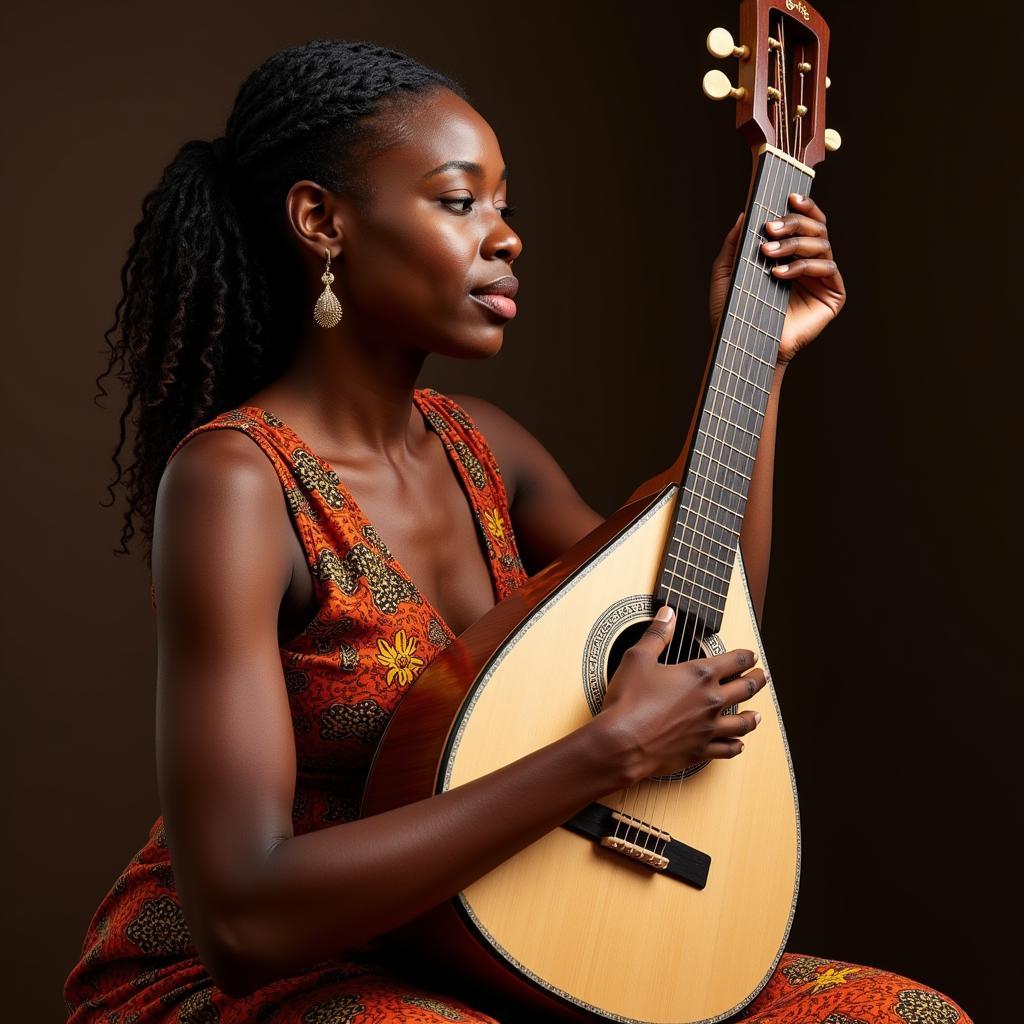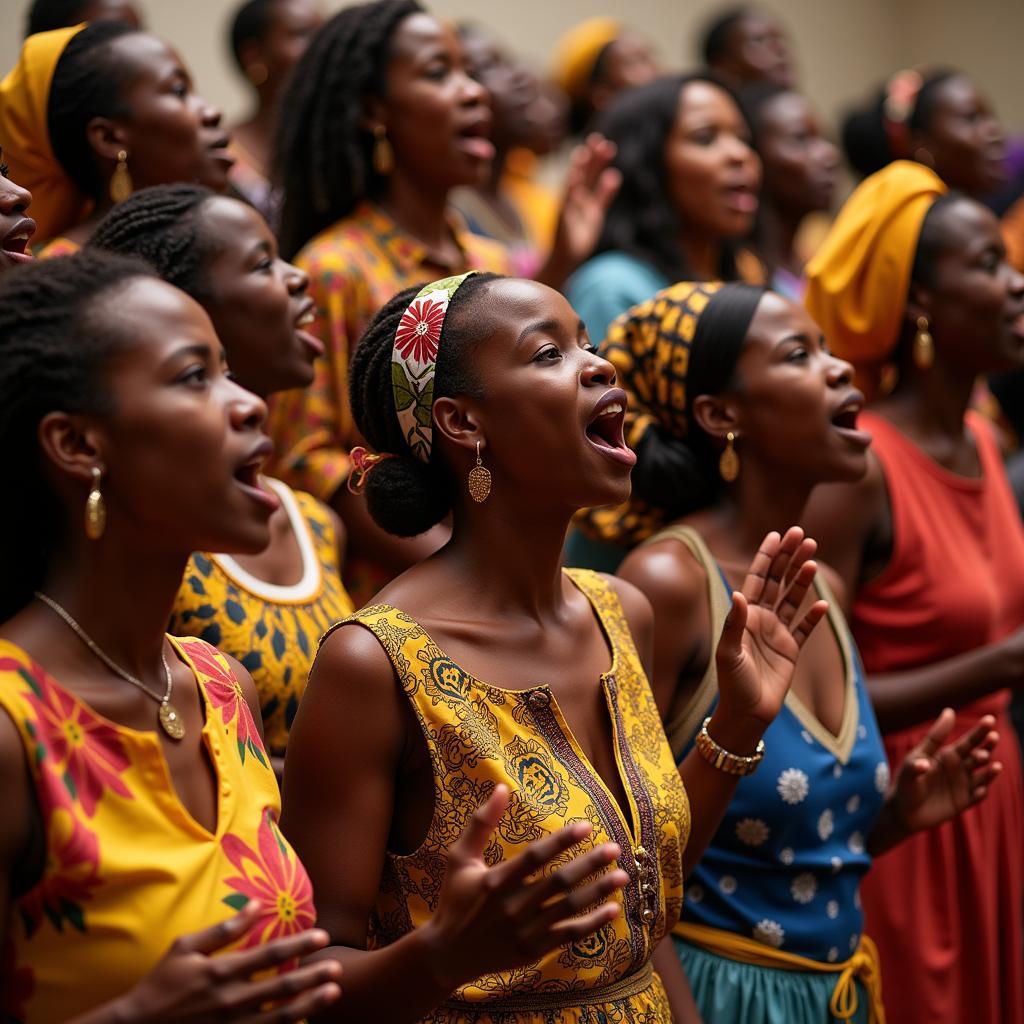The Enduring Power of the African Lady Song
The phrase “African Lady Song” evokes a universe of sound, rhythm, and emotion. It speaks to a rich tapestry of musical traditions woven across the vast and diverse continent of Africa. From the soulful melodies of the griots of West Africa to the intricate polyphonies of East African choral music, the songs of African women resonate with power, resilience, and a deep connection to their cultural heritage.
A Legacy Carried Through Generations
For centuries, African women have used song as a means of communication, celebration, and social commentary. Passed down orally from one generation to the next, these musical traditions often embody the history, values, and beliefs of a community. In many cultures, specific songs are reserved for important life events like births, weddings, and funerals, underscoring the integral role music plays in marking significant milestones.
More Than Just Music: A Platform for Storytelling and Social Change
 West African woman playing the kora
West African woman playing the kora
Beyond their entertainment value, African lady songs serve as powerful vehicles for storytelling and social commentary. Through evocative lyrics and impassioned delivery, these songs address a wide range of themes—love, loss, joy, sorrow, social injustice, political oppression, and the everyday realities of life on the African continent. Artists like Miriam Makeba, known as “Mama Africa”, used their voices to fight against apartheid in South Africa, their music becoming anthems of resistance and hope.
A Fusion of Tradition and Modernity
Today, a new generation of African female artists continues to build on this rich musical legacy. Artists like Angelique Kidjo, Yemi Alade, and Fatoumata Diawara, to name a few, are blending traditional rhythms and instruments with contemporary genres like pop, jazz, and electronic music. This exciting fusion of styles has captivated global audiences, introducing the world to the vibrancy and diversity of African music in the 21st century.
The Universal Language of Music
 East African women singing in a choir
East African women singing in a choir
The enduring power of the “African lady song” lies in its ability to transcend cultural and linguistic barriers. It is a testament to the resilience, creativity, and spirit of African women, and their enduring contributions to the global musical landscape. Whether sung in Swahili, Wolof, Yoruba, or any of the other diverse languages spoken across the continent, the message resonates: music is a universal language, capable of uniting hearts and minds across borders and generations.
Conclusion
The next time you hear the phrase “African lady song,” let it be a reminder of the rich tapestry of musical traditions woven into the fabric of the continent. It is a reminder of the powerful voices that have risen from Africa, sharing stories of joy, sorrow, struggle, and hope. As you delve deeper into the world of African music, you’ll discover a vibrant and ever-evolving art form that continues to captivate and inspire listeners worldwide.

